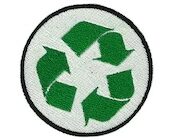
USEFUL GARDENING INFORMATION
Many gardeners who have read my articles have seen this information before, but for the new citizens and home owners to our area that wish to begin a garden, I believe this will be very helpful.
START WITH THE SOIL
Whether your goal is a plush green lawn or a large harvest of vegetables, soil fertility testing is the place to start. It helps by determining a soil’s pH and need for lime and fertilizer. The best time to take a soil sample is before spring fertilization or after harvest in the fall. Do not sample shortly after a lime, fertilizer, or manure applications or when the soil is excessively wet. For lawns, late summer sampling will prepare you for fall fertilization.
The Rutgers Soils Laboratory uses state-of-the-art instruments and methods of soil analysis. They suggest soil testing be repeated every 2–3years.
WHY DOES SOIL pH MATTER?
Soil pH is a scale to measure how acidic or alkaline the soil is. Soil pH of 7 is neutral, below 7 is acidic and a pH above is alkaline. Plants, vegetables and grass grow better, are healthier and produce more within their own pH range. The proper pH permits plants to absorb minerals from the soil. Evergreens require an acidic pH around 4.5 while tomatoes need a pH of 7.0. By knowing the plant nutrition needs of your lawn and garden plots, you can prevent the over-application of fertilizers.
Soil test sampling kits are available for a fee of $20 Rutgers Cooperative Extension at their Garden Helpline offices. Office address listed below. You can also purchase soil test kits by mail. Separate soil samples will need to be taken from areas used to grow different types of plants. For example, separate soil test kits should be used for lawn areas and vegetable garden areas. Samples from rhododendron, azalea, and other broad leaf evergreen areas should be kept separate from other shrub areas. Also sample separately areas that have previously received different lime or fertilizer treatments and areas that are noticeably different in plant or soil quality.
USING WEED GARDEN CHEMICALS WISELY
Take a ride around your neighborhood on a hot summer’s day and it won’t take long to see someone spraying weed control on their lawn wearing short pants and sandals. I have seen this happen while the children were playing just a few feet away. Chemicals are so readily available and abundant in America we take them for granted. This is as true for the sellers as it is for us, the consumers. We are encouraged by the manufacturers to use their chemicals as often as possible.
Sadly many people use these chemicals without taking the time to read the label. If they did read the label they would know that these weed control chemicals become less effective as the temperatures get higher. The grass and weeds undergo stress and stop absorbing the chemicals. The toxins slowly evaporate creating a mist over your lawn where your children are playing. By the time the temperature reaches 90 they are not affective at all.
These chemicals work by attaching themselves to the weeds and then become absorbed into the cell tissues, working their way into the plant and finally the root system. When you apply them in short pants you are exposing your leg’s cell tissue to the same chemicals. Removing weeds from your garden beds has multiple benefits. Weeds compete with garden plants and vegetables for space, nutrients, sunlight and water. Worst of all for many gardeners, weeds make your beds look messy and untended. Basically weeds are plants growing where you don’t want them. This can apply to wildflowers, shrubs and even trees, such as the Norway maple. Whenever possible use safer weed control practices such as hand weeding and mulching in the spring.
USE AND STORAGE OF GARDEN CHEMICALS
- Read and follow the directions on the label.
- Store all chemicals properly as directed on the label.
- Don’t let liquids freeze or get too hot and don’t allow dried chemicals to get moist. If you go to a store and their chemicals are sitting in the sun or are not properly stored, go to another store.
- Always wear gloves when mixing any chemical.
- Cover your nose and eyes, arms and legs, especially when spraying.
- Even though your mix may be 100% organic don’t breathe it in. Most organics contain microorganisms you want in your soil, but not in your lungs.
“An ounce of prevention is worth a pound of cure.”
Information from Rutgers Fact Sheet # 797 Soil Testing.
For a comprehensive list of Rutgers Cooperative Extension publications visit rce.rutgers.edu
GARDENING QUESTIONS?
NEED INSECTS IDENTIFIED?
RUTGERS COOPERATIVE EXTENSION OF UNION COUNTY GARDEN HELPLINE CAN HELP.
Even landscape professionals occasionally need assistance identifying problems. Diseases of trees and shrubs or insects need to be properly diagnosed before they can be cured or controlled. Luckily for us, Rutgers Cooperative Extension has county offices throughout New Jersey. Your county office can be found in the yellow pages or online. Rutgers Garden Helpline is staffed by trained volunteers to assist the citizens of their county with continuing educational opportunities supplied by Rutgers agricultural department agents during the year.
Rutgers Garden Helpline of Union County is located at 300 North Ave East, Westfield, NJ, (Colleen Fraser Building, 2nd floor)
For questions and office hours call the Garden Helpline at 908-654-9852.
There are three ways you can reach the garden helpline with your questions.
First you can call them at number above.
Secondly you can email questions and photographs to: mastergardeners@ucnj.org
Or clients can bring a plant, lawn, or insect samples to the office. Specimens are the surest way to guarantee a proper identification.
Summer hours are Monday to Thursday (10AM-2PM) Friday (10AM-12)
The Garden Helpline volunteers are well trained to identify tick species including ‘deer ticks’ which transmit Lyme disease to humans and pets. This is an extremely valuable service as the deer and tick population continue to grow in New Jersey. Along with garden critters the Helpline will identify house infesting insects such as carpenter ants, termites and food infesting pests.
Happy & Safe Gardening,
James





